Ahoy music buffs, if you’re a fan of good ol’ country music, then welcome aboard – we’re about to take you on a ride through the heart of it all. Strap in tight, because there are lots to cover – from deep dives into country music’s fascinating history and origins to comprehensive guides to the genre’s most popular songs and artists.
Buckle up – it’s time to explore the world of country music!
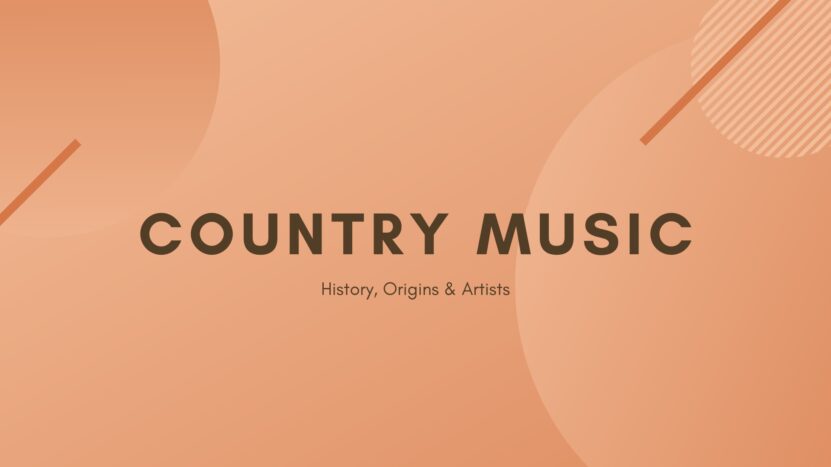
Country Music Origins
Country music, which originated in the southern United States around the 1920s, is a genre of popular music that has since evolved over time. Guitars, banjos, harmonicas and fiddles are just some of the traditional instruments used in country music. While western swing and honky-tonk remained popular throughout the 1940s and 1950s, it wasn’t until the so-called “Nashville sound” emerged during the mid-1950s that country music gained wider recognition and popularity.
This style of country music emphasized slick production techniques such as artificial reverb settings and background vocals, while still preserving its jazz & blues roots.
From the 1960s through today, there have been many successful country artists who have gained immense commercial success by incorporating elements of pop & rock into their sound. As a result of this cross-pollination between genres, styles like folk/country rock, new traditionalism (an updated take on classic honky-tonk), and Outlaw Country (a rejection of mainstream Nashville sound) arose during this time period as well.
Throughout its history, many types of performers have done much to shape contemporary country music:
- Hank Williams (regarded as one of the most influential musicians in early Americana & hillbilly sounds)
- Loretta Lynn (whose unabashedly honest lyrics led her to become a feminist icon in country music circles)
- Willie Nelson & Waylon Jennings’s “Outlaw Country” movement (pushing against corporate conventions)
- Dolly Parton (whose irreverent tongue-in-cheek style helped to add an element of showmanship to modern-day performances)
- Ricky Skaggs (whose innovative blending of bluegrass & new traditionalism sparked a resurgence in old-timey sounds)
In addition to these stars, there are countless other acts from all eras who have made significant contributions to the evolution of this musical genre.
History of Country Music
Country music is a genre of American popular music that originated in the Southern United States, and found its roots in traditional folk music and Appalachian music. Characterized by its twang, country music is an enduring style of music with growing worldwide popularity.
The history of country music begins with the very first recordings of hillbilly and blues sounds in 1922 by artists such as Emmett Miller and pioneer Fiddlin’ John Carson. Other recording pioneers, including Jimmy Rodgers, Gid Tanner, Aaron Copeland, Bill Monroe and Bob Wills all helped shape the development of country-western sound over the next couple of decades.
By 1945 many artists like Hank Williams had become established stars with songs like “Lovesick Blues” becoming international hits. In 1965 Johnny Cash’s defining album “Ring Of Fire” brought together traditional country sounds with contemporary rock influences which set him apart from his peers and brought him international acclaim.
The genre continued to develop over the course of the twentieth century, blending various country styles together to create unique fresh new sounds. During this time period, both traditionalists like George Jones and modernists like Garth Brooks had achieved mainstream success with their very distinctive takes on country stylings. Some of the most beloved songs ever written are part of this rich history; Merle Haggard’s classic “Okie From Muskogee”, Kris Kristofferson’s inspiring “Sunday Morning Comin’ Down” or Willie Nelson’s timeless masterpiece “On The Road Again” just to name a few.
At present times there are many diverse bands successfully carrying modern country forward into incredible new directions led by vocalists such as Carrie Underwood, Blake Shelton and Kacey Musgraves among hundreds more incredible rising artists making waves in today’s industry landscape.
It truly remains an ever-evolving musical tradition for all kinds of fans around the world – from devoted fans who have always been enthusiastic about this wonderful culture to those newly discovering it every day!
Many people say that country and Christian music are related because there are many country songs that have religious themes. Although the two genres are completely different.
Best Country Music Songs
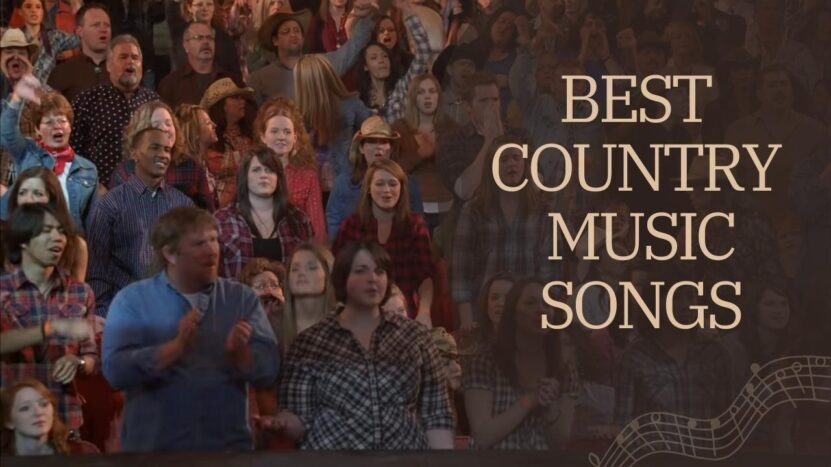
Country music is often associated with a classic style of storytelling that brings to life situations that range from heartwarming to heartbreaking. Through their lyrics, musicians in the genre explore topics like love, loss, social injustice and patriotism. Country music often has a folksy or tight-knit feeling and is often seen as unpretentious and down-to-earth.
From honky tonk and contemporary ballads to bluegrass classics and new trends in popular country music, there are a variety of songs that have won over fans during various times of the past century. Here are some of the most popular best country songs:
- “9 to 5” by Dolly Parton (1980)
- “I Walk The Line” by Johnny Cash (1956)
- “Crazy” by Patsy Cline (1961)
- “Jolene” by Dolly Parton (1973)
- “Oh Lonesome Me” by Don Gibson (1957)
- “Folsom Prison Blues” by Johnny Cash (1955)
- “She’s Got You” by Patsy Cline (1962)
- “Wide Open Spaces” by The Chicks (1998)
- “The Gambler” by Kenny Rogers (1978)
- “Forever And Ever, Amen” by Randy Travis (1987)
- “Copperhead Road” by Steve Earle (1988)
Most Popular Country Music Artists
As the country genre gained popularity over time, individual artists have earned immense success with their unique styles and engaging performances.
Here is a list of some of the most popular country music artists:
- George Strait
- Garth Brooks
- Reba McEntire
- Kenny Chesney
- Alan Jackson
- Tim McGraw
- Carrie Underwood
- Miranda Lambert
- Brad Paisley
- Dolly Parton
Genres of Country Music
The largest category of country music is “contemporary country,” but there are many other subgenres that provide an array of sounds from traditional country to pop-influenced sounds. These include:
Traditional Country:
This style combines elements that make up classic countries such as acoustic melodies, steel guitar playing, strong vocal performances, and rural-based lyrical content. Some iconic artists associated with this style were Hank Williams, Loretta Lynn, Patsy Cline and Merle Haggard. Examples include “I Walk the Line” (Johnny Cash), “Always On My Mind” (Willie Nelson).
Outlaw Country:
This incorporates traditional country but adds a more rebellious element with militaristic lyrics and intense vocals. Think Willie Nelson’s chapped lips when he sang “Whiskey River.” Notable outlaws are Waylon Jennings and David Allan Coe who both embodied this edgier take on classic country. Examples include “Cocaine Blues” (Johnny Cash), “Good Hearted Woman” (Waylon Jennings).
Americana Roots Music:
This style often borrows from older genres such as blues, folk, or hillbilly while mixing pop/rock elements in between. Artists such as Dwight Yoakam blended honky-tonk and rock together in his work while Gram Parsons’ Flying Burrito Brothers were later credited for introducing older styles like traditional folk into modern settings; their influence can be heard on second-generation alt-country bands like Wilco and Uncle Tupelo. Examples include “Fast As You” (Dwight Yoakam), “Peaceful Easy Feeling” (Eagles).
Honky Tonk/Modern Traditionalist Country Music:
Honky Tonk emphasizes slower tempos being played by a fiddle or steel guitar with simple songwriter compositions focusing on tales not typical in mainstream topics or influences; think Lucinda Williams’ song “Side of the Road” or George Strait’s single “Check Yes Or No” which put real people front row center again instead of abstract lyrics about love that often dominate today’s hits.
Modern Traditionalist Country artists kickstarted the roots revival scene blending rockabilly with more production due to more electronics being available now such as Johnny Cash’s single Dang Me! Examples include “Dang Me”(Johnny Cash), “Folsom Prison Blues”(Johnny Cash).
Instruments Used in Country Music
The instruments used in the creation of traditional country music and the evolution of more modern styles are ever-evolving. Starting from a basic repertoire of guitar, mandolin, banjo, fiddle, steel guitar and harmonica, the appeal of country music continues to spread with each generation.
Guitar
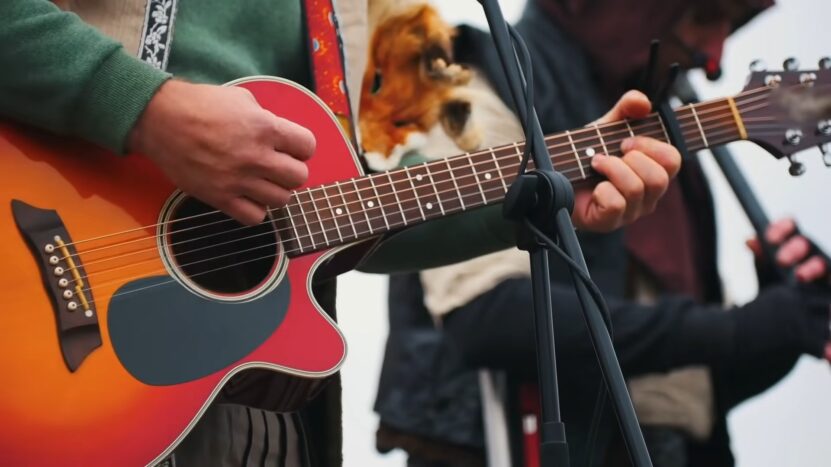
The electric guitar is a staple instrument in rock as well as country music. Unique elements of country music are found in acoustic or electric versions like nylon-stringed classical and steel-bodied resonance guitars.
Artists use several modifying techniques to accentuate their styles and provide unique sounds; some popular ones include hybrid picking, flatpicked strums and fingerstyle arpeggios.
Mandolin
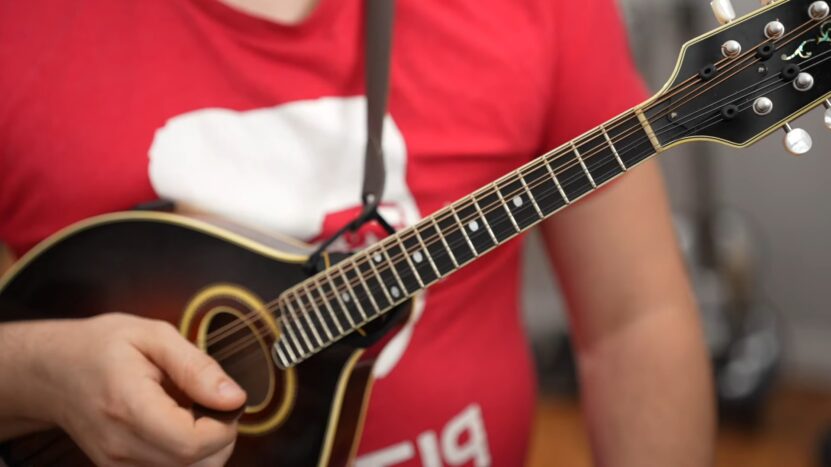
This small stringed instrument typically has 8 strings that are tuned in individual pairs (GDAE) and often featured prominently in folk songs accompanied by a banjo or fiddle. From classic bluegrass bands to modern country crooners this instrument provides a light but penetrating sound in any group setting.
Banjo
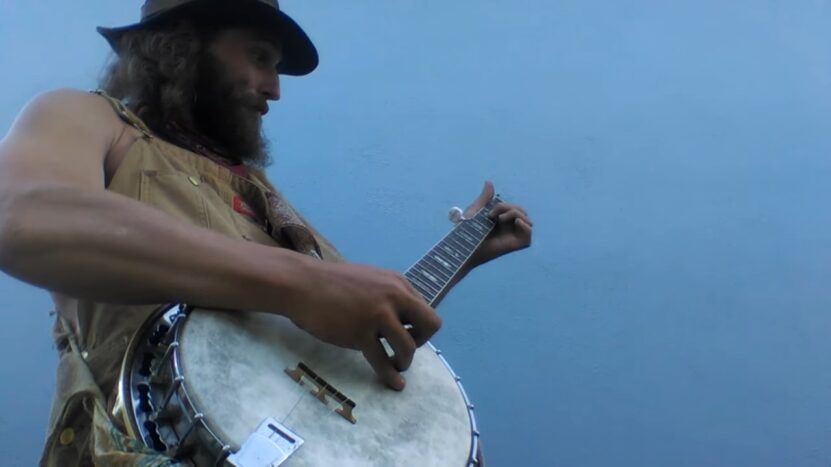
This ancient instrument with its distinctive plucking style is considered an integral part of many Old-Time Country Musical forms such as Bluegrass, Appalachian Folk Music and Old Time/Country Ballads & Hymns as well as Folk Southern Gospel Music among others.
Its small shape makes it ideal for playing loud yet fast passages normally associated with Irish jigs to popular Country Fiddle Reels including Ragtime tunes more recently adopted by “Classic Country” artists like Keith Urban.
Fiddle
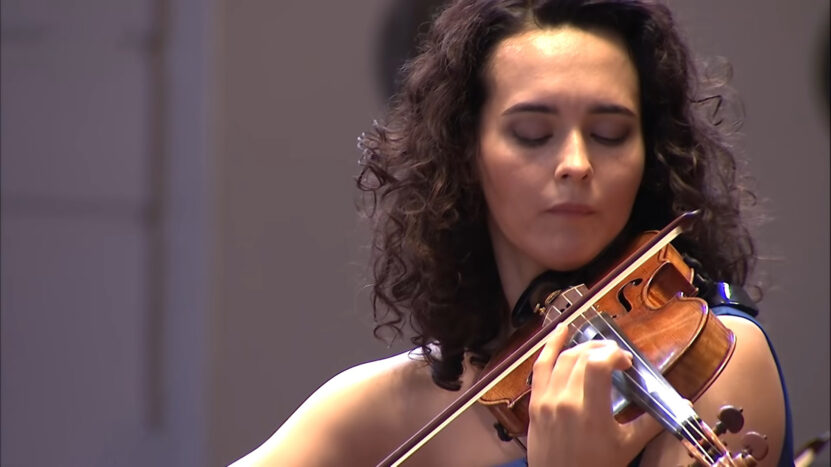
As the name suggests this bowed stringed instrument usually played with a bow is your typical staple at almost any strictly fiddles extravaganzas commonly known as “Fiddlers’ Conventions” where musicians play sets composed mainly out of fiddling/bowed solo pieces or accompanying singing songs during “open mic” competitions or jam sessions also known collectively under names such as ‘jam bands’ jam circles etc…
The typically very intricate passages performed on this stringed wonder commonly referred to simply as ‘fiddling’ produces sensational rifts that transport us far away from our everyday lives often taking us back into days far gone by ever so slightly reminiscent then forgotten yet timeless emotions rise alongside these gentle wistful tones reminding us at time times still have some secrets left should we easily look up listen & feel long enough…
Steel Guitar
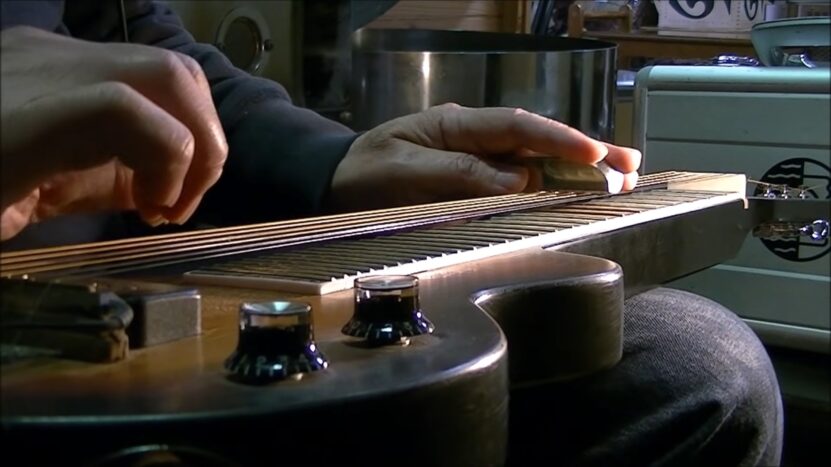
These have been used extensively throughout various genres since its inception in 1922 when Henry Halstead introduced pedals that modify vibrato intensity charging sources. Even today Steel Guitars remain incredibly popular, especially within Classic Country-induced ballads although occasionally showing an active presence even within modern pop-leaning Country ballads nowadays too…
With its roots deeply embedded within Hawaiian Music they are normally played while seated sliding across what’s called an “apron strings” reinterpreting known & new Contemporary Classic tunes that impart on listeners sometimes mesmerizingly subtle soft feelings sometimes sweet happy ones strangely moving into outright melancholy innuendo ridden laments thus eliciting sometimes bewildering musical moments felt reflecting even forsaken lifestyles lived for numerous years & ages potentially gone behind one’s generation back.
Cultural Impact of Country Music
Despite its roots in rural America, the sound and message of country music has had a great impact on listeners around the world. Artists such as Johnny Cash, Dolly Parton and Willie Nelson are some of the most recognizable faces in entertainment and their songs transcend international boundaries.
Country music captures complex emotions such as romance, sorrow and joy while also reflecting on tradition and shared history. In some cases, these themes resonate with people living in urban settings who may share similar experiences with those living in rural areas.
It can also provide a sense of belonging for people from underserved communities or those who feel isolated due to lifestyle differences.

Politically, country music has been known to bridge ideological divides by speaking to the feelings of everyday people regardless of their political persuasions. Common topics such as patriotism, hard work, family values and love recognize what binds us together as Americans regardless of our backgrounds. Country music has become a powerful way to express common values while encouraging tolerance of diversity within our communities.
The influence of country music can be felt far beyond its home soil, uniting fans from across the globe through shared values and respect for each other’s culture. Country music may have started with simple songs about pickup trucks but today it’s transcended into something much bigger with the potential to make a big impact on society – both at home and abroad.
Other Notable Country Music Figures
Country music has now become part of the fabric of American life, with many notable artists, producers and performers have helped to shape the genre over the years. Here’s a look at some of these influential players:
- Kenny Rogers – A country-rock legend who undoubtedly left an indelible mark on the music industry, Kenny Rogers rocketed to superstardom in 1977 and had multiple chart-topping hits during his 50-year career. His much-loved classic hits include “The Gambler” (1978), “Lucille” (1977) and “Islands in the Stream” (1983).
- Hank Williams – One of country music’s most influential figures, Hank Williams infused his rich baritone voice with a deep passion for traditional country and blues. He is credited with penning numerous modern standards, such as “Your Cheatin’ Heart” (1952), which has been covered by a range of artists including Bob Dylan, Merle Haggard and Johnny Cash.
- Dolly Parton – From her early beginnings as a teenage singer in Tennessee to her modern career as an esteemed actress, songwriter and entrepreneur, Queen of Country Dolly Parton helped put Nashville on the musical map. Parton’s iconic Jukebox hits from the 1970s include “Jolene” (1974) and “I Will Always Love You” (1975).
- Johnny Cash – The King of Country Music left behind an iconic legacy that often bridges generations – from rockabillies who loved his early era work to modern audiences who were exposed to his prison albums in later years. Cash is probably best known for songs like “Ring Of Fire” (1963) and “Folsom Prison Blues” (1955).
- Willie Nelson – A true troubadour whose career spans five decades, this country great fuels his incredible output with passionate performances that draw upon both traditional roots elements as well as more contemporary aspects. Nelson’s classic hits include “Crazy” (1961), “On the Road Again” (1980) and “Mamas Don’t Let Your Babies Grow Up To Be Cowboys” (1978).
